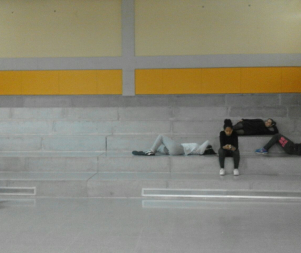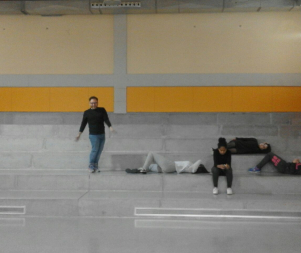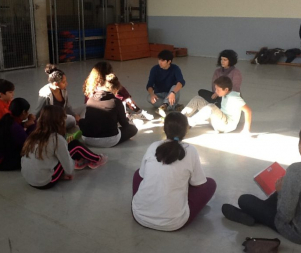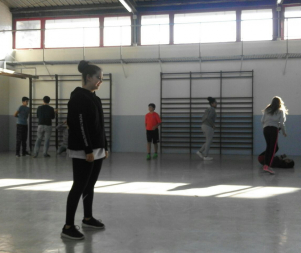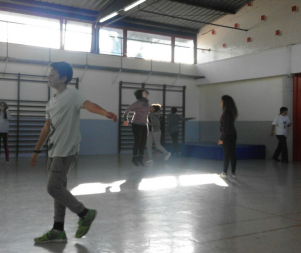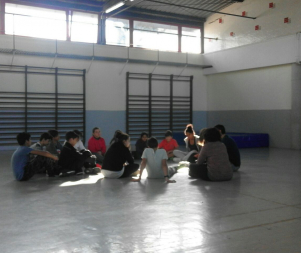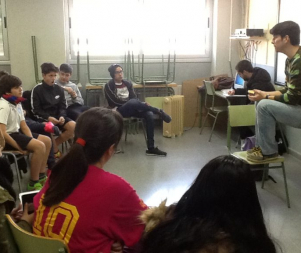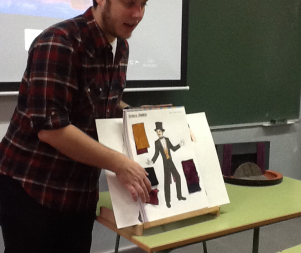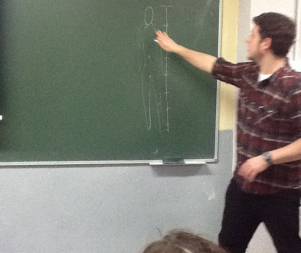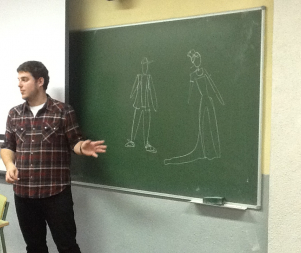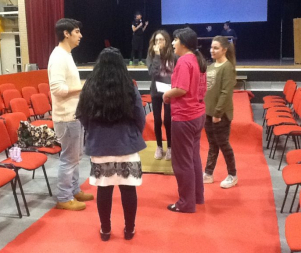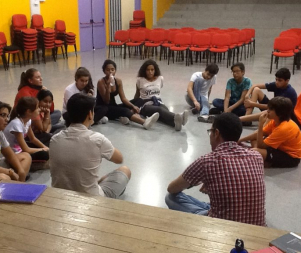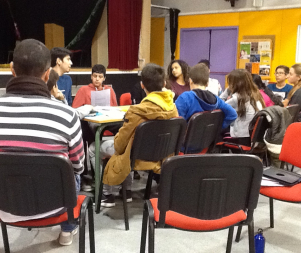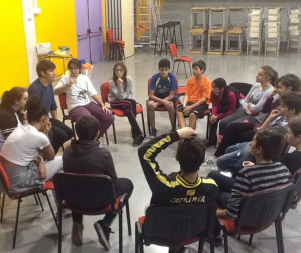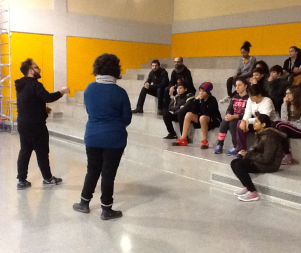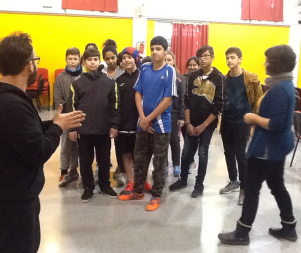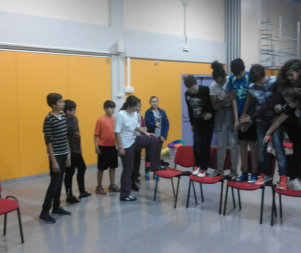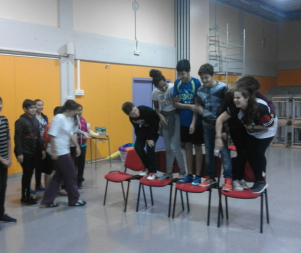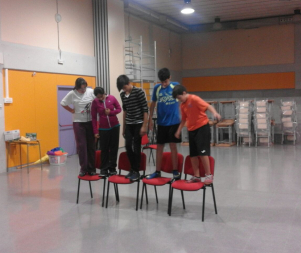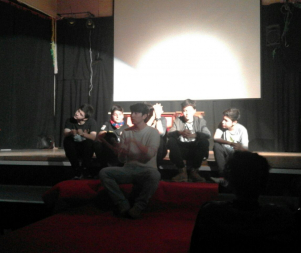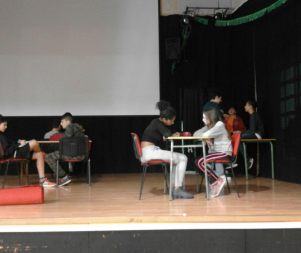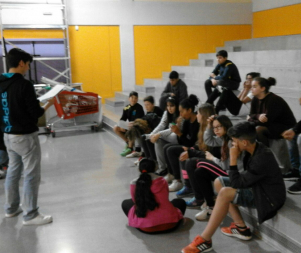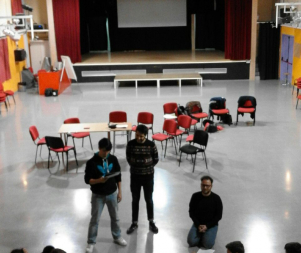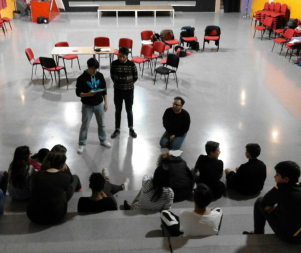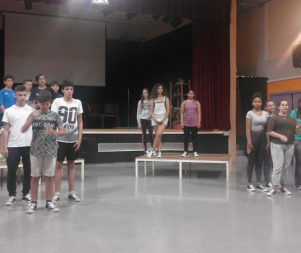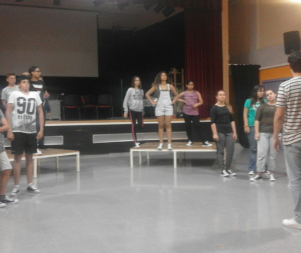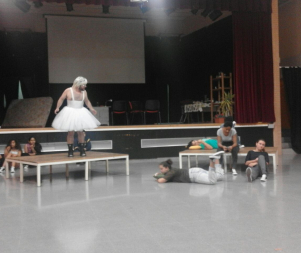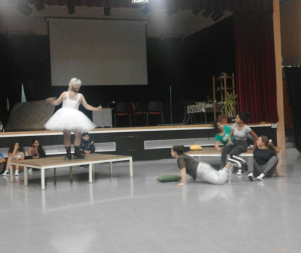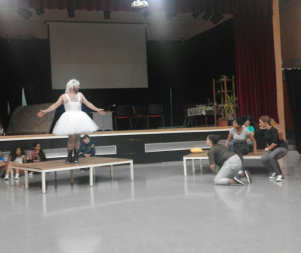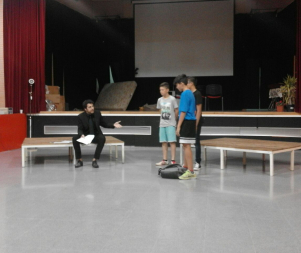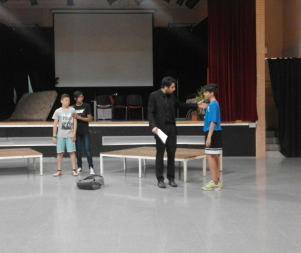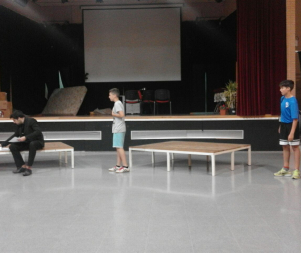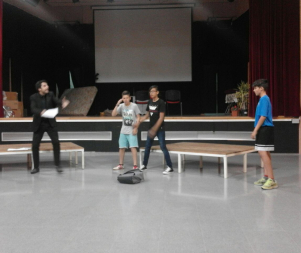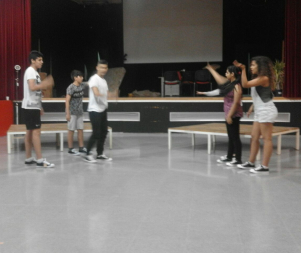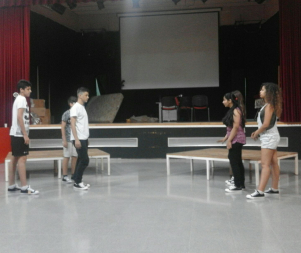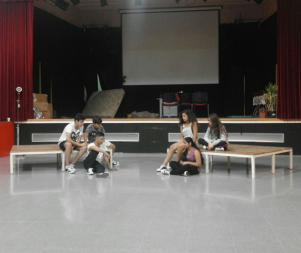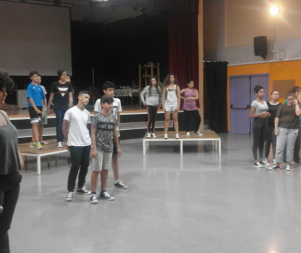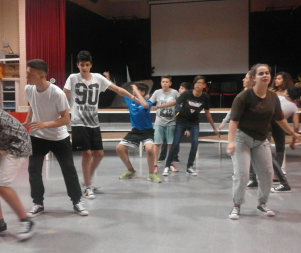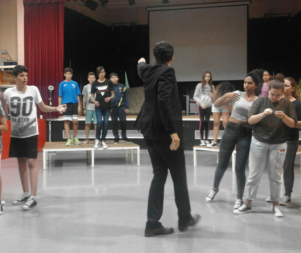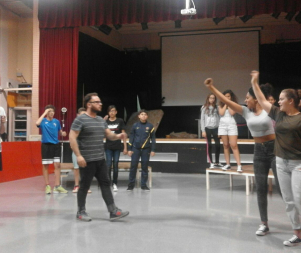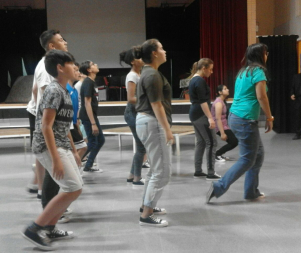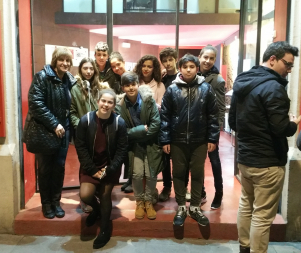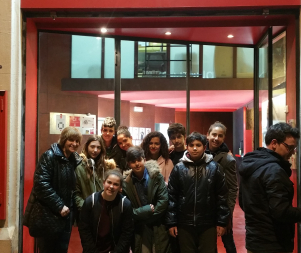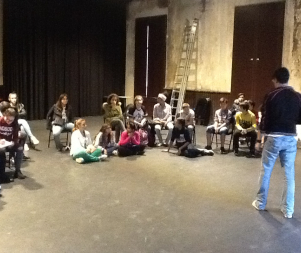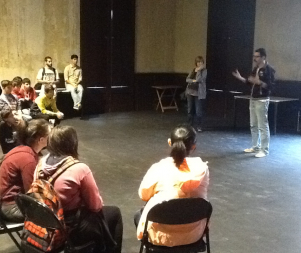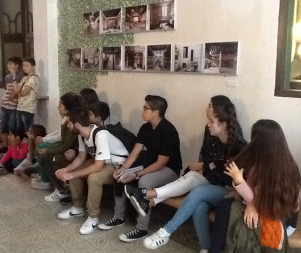- 14th EDITION 2022 / 2023
- 13th EDITION 2021 / 2022
- 12th EDITION 2020 / 2021
- 11th EDITION 2019 / 2020
- 10th EDITION 2018 / 2019
- 9th EDITION 2017 / 2018
- 8th EDITION 2016 / 2017
- 7th EDITION 2015 / 2016
- 6th EDITION 2014 / 2015
- 5th EDITION 2013 / 2014
- 4th EDITION 2012 / 2013
- 3rd EDITION 2011 / 2012
- 2nd EDITION 2010 / 2011
- 1st EDITION 2009 / 2010
La Calòrica IN RESiDENCE at the School Barri Besòs
THE RESIDENCY
At the start of the project, La Calòrica theatre company proposed to share the creative process behind a theatre work with the pupils. The idea was to enable the pupils to join in the decision-making so that they would experience the whole process as their own. La Calòrica decided that stage director Israel Solà should be the most visible face of the company, going to the school more often, while the other members would go occasionally, when different disciplines were involved: Joan Yago for dramaturgy, Albert Pascual for set and costume design, etc.
The first term, from October to December, was devoted to getting to know each other. The various members of La Calòrica introduced themselves at different sessions, telling the pupils about their creative methods and showing them examples of their work (in videos, photographs and even models and figures from the company’s leading productions, such as L’editto bulgaro or La nau dels bojos). This initial period was also used to show the group (and allow them to try for themselves) the different disciplines involved in creating a theatrical work: from writing the text – with Joan Yago— to performing the piece – with Esther López and Xavi Francés— as well as building the set and designing costumes – with Albert Pascual for both aspects. In short, the idea was to give the pupils a taste of all the activities involved in creating and performing a play.
After the Christmas holidays, it was time to begin defining the project. La Calòrica had an idea: the company was due to premiere Fairfly, a show for adults about success and its consequences, with performances from March 2 to 26 at the Teatre Tantarantana. The idea then arose of creating a show about success based on the opinions and interests of the young people in the group. What does success mean to them? And what is failure? Does anything go in order to achieve success? What role does success play in achieving happiness? Israel Solà asked the pupils all these questions, and the group worked on them through writing and improvisation exercises. This led to the discovery that one pupil, Jose, is a master of solving Rubik’s cube (he can resolve it in just seconds) and, as a result, the group decided to use these cubes as a metaphor for their own success and failure.
Little by little, the group created the three parts of what finally became a show entitled Rubik. Firstly, there was an introduction, formed by a list of wishes and dreams, things that the pupils themselves would like to happen and which they would consider a step along the path to success. Secondly, a series of scenes revolving around the 13th Annual Rubik’s Cube Competition, in which the pupils play the roles of people of their own age, from different backgrounds, who take part in the contest and want to win at all costs. Finally, a third, more evocative part in which a voice off closes the piece by narrating the different possible endings to the story.
Israel Solà gave the final form to each of these three parts (writing the words on a sheet of paper, cleaning it up and choosing some words and not others). However, all the words emerged from exercises that he or other members of the company suggested to the group: from asking them to make a list of things that they would like to change or world or simply to take place, to getting them to improvise on the theme of the Rubik’s cube competition, based on an idea suggested by La Calòrica. In this case, Israel guided the improvisation exercises in one way or another and, later, at home, wrote the scene down on paper.
Over the closing two months of the project, by which time Israel had got the work more or less written, the group began to assemble the piece with the actors. Little by little, the performers became aware of the difficulties entailed in acting: learning the script, acting naturally, voice projection, etc.
REHEARSAL
The final month was the most intense in the project. There were extra rehearsal sessions and, on occasion, the whole morning (from 10 am to 2.30 pm). Gradually, however, the piece began to take shape.
ACTIVITIES LINKED TO THE RESIDENCY
Over the course of the residency, a series of activities was organised, involving various companies and theatre:
26 October 2016: visit to the Sala Beckett to attend rehearsals for the play La desaparició de Wendy, by Josep M. Benet i Jornet, directed by Oriol Broggi, in the Sala de Baix room.
24 November 2016: attendance at an evening performance of Josep M. Benet i Jornet’s La desaparició de Wendy, directed by Oriol Broggi, in the Sala de Baix room.
2 March 2017: attendance of a matinée performance of Wasted, by Kate Tempest, directed by Iván Morales. Wasted is an Íntims Produccions production performed in the Sala de Dalt room at the Sala Beckett.
8 March 2017: attendance at an evening performance of Fairfly, written by Joan Yago and directed by Israel Solà. Fairfly is La Calòrica production staged at the Teatre Tantarantana.

